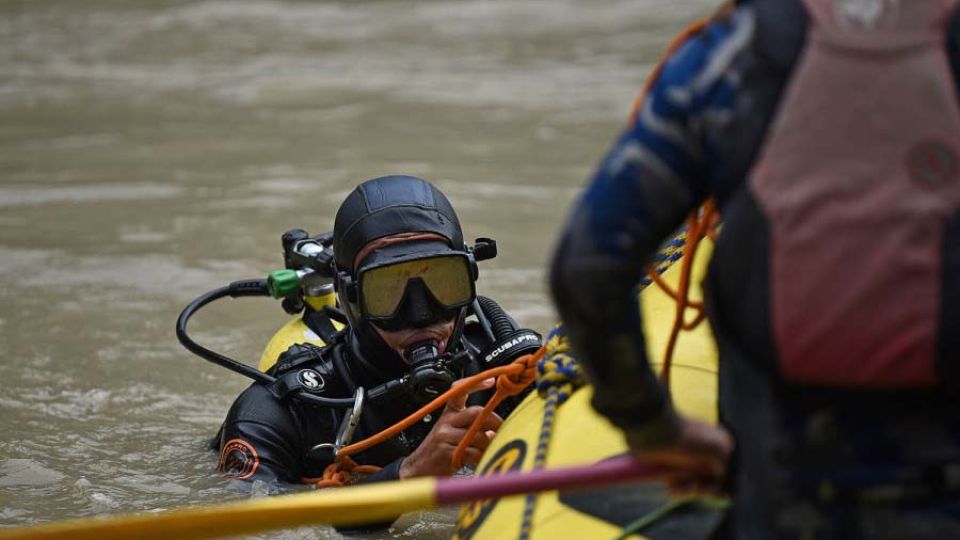August 13, 2024
CHITWAN – A month after the devastating landslide at Simaltal, Chitwan, which swept two buses into the Trishuli river, search and rescue efforts for the missing passengers and vehicles continue.
Extensive search operations, which also included the deployment of an Indian team for several days last month, have been unable to locate the two missing buses and many passengers swept away by the landslide. The first phase of the search concluded on July 29, when the Indian team left.
Nepali security forces initiated the second phase of search operations on the same day.
“We have been conducting regular surveillance from Ghumaune Kerabari to Bhorle, a section of the river several meters downstream from the accident site. An eleven-member team is dedicated to this effort,” said Senior Superintendent Madhav Paudel, who is also director at the Armed Police Force’s Disaster Management Training School in Chitwan.
He added that a team of divers is on standby at the Armed Police Force’s 17th Battalion in Anptari, Narayanghat. Additionally, a team from Nawalparasi is monitoring the Triveni area of the Narayani River.
“Sandbars emerge when the river shifts its course during floods. We are continuously keeping these areas downstream from the accident site in observation in the hope of finding the wreckage of the buses,” said SSP Paudel.
Two buses carrying more than 60 passengers were hit by a landslide on the Narayanghat-Mugling road section in the wee hours of July 12, and the buses were swept away by the Trishuli river. Three of the passengers managed to get outside and swim to safety.
The search teams have so far recovered 25 bodies in the Narayani riverbanks and in the Triveni Dam area, approximately 103 kilometres downstream from the incident site. Only 19 bodies found downstream have been confirmed to be of those missing in the incident.
The government had formed a five-member task force headed by Joint Secretary Chhabi Rijal of the Ministry of Home Affairs to investigate the incident. The task force submitted its report to Home Minister Ramesh Lekhak on August 6.
The task force concluded that the accumulation of debris and gravel from the construction of a rural road above the Narayanghat-Mugling road triggered the landslide that swept away the buses following heavy rainfall.
There are conflicting reports on the total number of passengers in the buses. Issuing a statement on July 14, the District Administration Office in Chitwan said that there were 65 passengers in the buses; three of them survived by swimming.
However, the task force’s report states that there were a total of 62 passengers—36 passengers on Gaur-bound bus and 26 on the bus heading to Kathmandu from Birgunj. Among them, three passengers on the Gaur-bound bus survived, says the report.
The task force report states that Bharatpur Metropolitan City neglected environmental factors during the construction of the rural road. Further, the report blamed the Bharatpur Division Road Office for failing to clear landslide debris from blocked culverts.
The report further emphasised the absence of a road risk warning system, which contributed to both drivers and security personnel underestimating the danger. The task force recommended strict adherence to the Public Roads Act of 1974, which requires prior approval from the Department of Roads before constructing any roads above highways.
The panel also recommended equipping search and rescue teams with a variety of tools and modern technology to effectively respond to evolving challenges.
A 12-member Indian search and rescue had come to Nepal to search for two buses and their passengers missing in the Simaltal accident but returned home empty-handed on July 29.
Rescuers from India’s National Disaster Response Force (NDRF) joined the Nepali rescue teams of the Nepal Army, Nepal Police and Armed Police Force on July 21 and worked for a week.
While bidding farewell to the Indian team, Chief District Officer Indradev Yadav said the Nepali team would continue the search operation until further notice.


